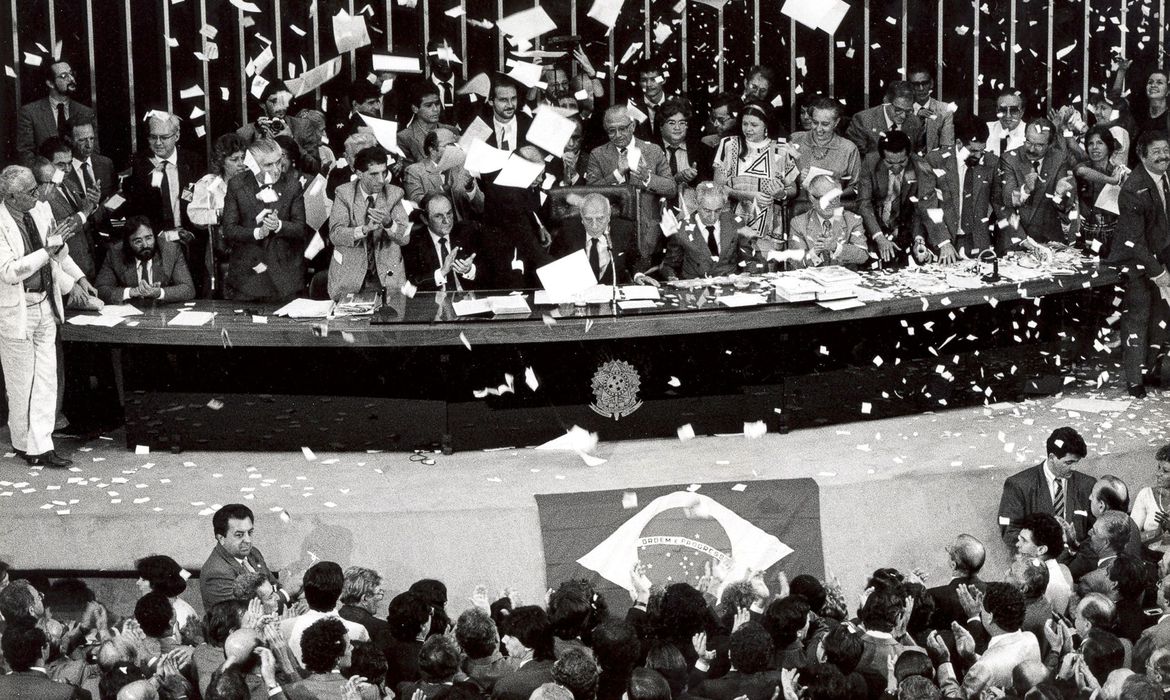Constitutions are the legal consequences of political processes, which are at times contentious and bloody, as Brazilian law professor Silvio Almeida wrote in a recent op-ed. He adds that they serve as a “full stop” to bookend an era — and a new beginning for a nation. In Brazil, that process occurred in 1988, when the country passed one of the world’s boldest charters in terms of indigenous rights, public healthcare, and civil protections.
But, as it turns out, allies of President Jair Bolsonaro want that full stop to be changed into a comma.
Congressman Ricardo Barros, the government’s whip in the House of Representatives, said the Brazilian Constitution has made the country “ungovernable” and promised to present a bill calling for a plebiscite to scrap the current charter for a new one, to be drafted from scratch. He would also propose a change of Brazil’s current presidentialist system of government to parliamentarianism — something the country voted against twice, in 1963 and 1993.
In the opinion of Mr. Barros, the Constitution handcuffs the government by giving “too many rights” to Brazilian citizens. “We should write [in the new charter] the word ‘duties’ more often, as citizens must contribute more to the nation,” he said.
“Mr. Barros is not the first to propose a new Constitution. Every few years, this...


 Search
Search






































